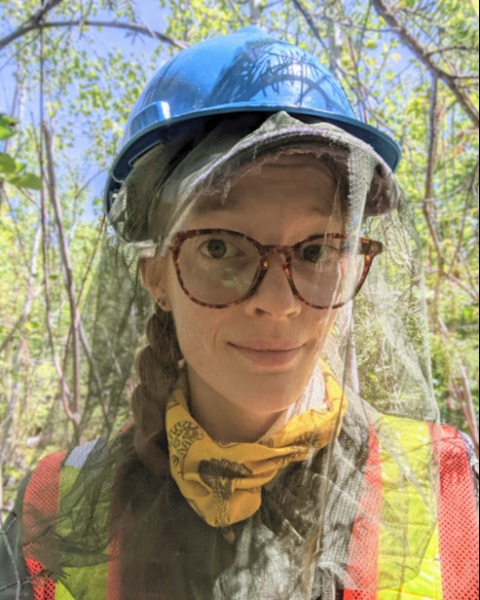Back
Systematics, Evolution, and Biodiversity
Student Competition 10-Minute Paper
Grad SysEB: Pollinators and Conservation
Effects of clearcutting on fitness and survival in ground beetle species Pterostichus pensylvanicus and Pterostichus coracinus
Monday, November 14, 2022
11:06 AM – 11:18 AM PT
Location: Vancouver Convention Centre, Meeting Room 220

Lauren Egli
PhD Student
Université du Québec
Waterbury Center, Vermont- TW
Timothy Work
Université du Québec
Montréal, Québec, Canada
Presenting Author(s)
Co-Author(s)
Species recovery following harvesting will depend on life history traits including fecundity and survivorship. If these traits are heritable, post-harvest recovery of remnant populations within marginal habitats would benefit from interbreeding with individuals with greater fitness. Over longer timeframes, this could contribute to ‘evolutionary rescue’ which may help populations adapt to larger stressors such as climate change. We tested whether fecundity and survivorship differed in the F1 generation of two ground beetle species, Pterostichus pensylvanicus and Pterostichus coracinus, in both clearcuts and uncut forests when parental lineages were restricted to parents drawn from clearcuts or uncut stands. F1 larvae from lineages were placed in arenas in either clearcuts or uncut stands and fed ad libitum. As a control, F1 larvae with restricted parental lines were also reared in the laboratory. Fecundity and survivorship did not differ by habitat or lineage for P. pensylvanicus. However, we observed significant habitat x lineage interactions on fecundity and survival in P. coracinus. Survivorship of coracinus larvae from clearcut lineages was 4% in clearcuts and 36% in uncut stands. Survivorship of coracinus larvae from uncut lineages was 33% in clearcuts but 16% in uncut stands. In the lab, P. coracinus eggs from uncut lineages took longer to hatch than eggs from clearcut lineages. Progeny from uncut lineages also lived longer than progeny from clearcut lineages. Overall, survivorship of P. coracinus increased when progeny were reared in novel habitats. Additionally, when habitat was controlled, P. coracinus progeny from uncut lineages had increased fitness.


